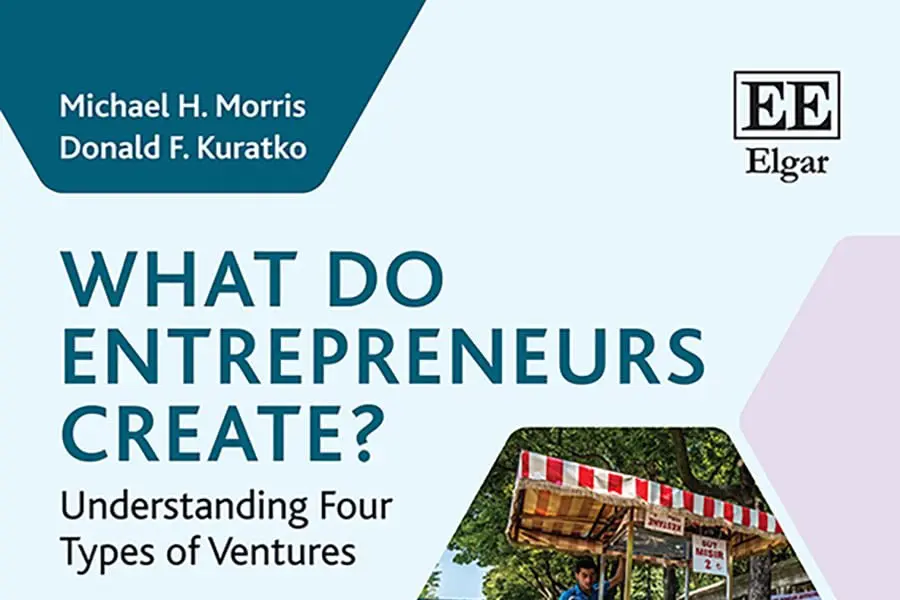Debunking the Venture Capital Mindset

In elite business circles, captivated by the allure of venture capital, angel investors, and private equity—where high-stakes pitches and rapid scalability dominate discussions—there is a pressing need to reevaluate our support for the broader entrepreneurial community. This necessity stems from the prevailing venture capitalist mindset—that prioritizes quick judgments and harsh critiques, often overshadowing the more common yet vital forms of entrepreneurship.
Too often, university professors and investors approach young entrepreneurs’ ideas with a critical mindset, focusing on what won’t work and exposing every flaw. However, no business is without its imperfections; they all start with uncertainties, and mistakes are inevitable.
Despite extensive research, entrepreneurs cannot foresee the perfect business plan, pricing, product mix, target audience, marketing strategy, staffing, location, or hours of operation. Entrepreneurship inherently involves trial and error, making adjustments along the way.
Dr. Michael H. Morris
Seeking Funding & Pitch Competitions: A Double-Edged Sword
Raising capital scenarios sometimes play out like a gladiator arena: entrepreneurs pitch their ideas under intense scrutiny after impressive performances, hoping to be the last ones standing after a barrage of critiques and questions. This model, while exhilarating, promotes a “pick the winners” game where one victor emerges, and many others are left without support. It fosters an environment where the potential is often dismissed too hastily, and failure to impress immediately can spell a waste of time and possibly the end of valuable ideas. Professors and investors, acting as gatekeepers, may focus more on flaws than on the growth potential, discouraging many would-be entrepreneurs.
Pitch competitions exemplify the problematic aspects of the venture capitalist mindset. They create a high-pressure environment focusing on winning rather than learning. There’s no single formula for a successful business, as each venture has unique challenges and requirements. True entrepreneurship involves trial and error, adjustments on the fly, and learning from each step, not just delivering a polished pitch. The conventional approach of dismissing or undermining ideas fails to recognize this reality. We believe in nurturing ideas, not dismissing them, especially when working with those who might not have all the advantages.
The Corridor Principle: Embracing Emergent Entrepreneurship
Entrepreneurship is fundamentally emergent, as described by the “Corridor Principle.” The Corridor Principle is a concept in entrepreneurship theory that suggests that new ventures and opportunities become visible only after an entrepreneur has started their journey. Robert Ronstadt introduced this principle in 1988. It highlights the idea that once entrepreneurs begin their ventures, they can see and access opportunities that were not apparent to them before taking those initial steps. The principle is named metaphorically after a corridor along which multiple doors may open as one moves forward.
As entrepreneurs progress in their ventures, their experiences, knowledge, and actions unlock new pathways and possibilities that could not have been planned or foreseen from the outset. This dynamic process of discovery and adaptation is crucial to entrepreneurial success, emphasizing the importance of flexibility, learning, and responsiveness as entrepreneurs navigate and grow their businesses
Ronstadt, 1988
What Entrepreneurs Create
In his book, “What Do Entrepreneurs Create?: Understanding Four Types of Ventures”, Dr. Michael H. Morris describes the distribution of different types of businesses in the U.S. economy. Most businesses fall into categories that rarely seek venture capital. Survival businesses, constituting about 60% of the market, are typically small-scale operations to support a family’s basic needs. Lifestyle businesses, making up about 30%, allow owners to maintain a certain lifestyle without primarily focusing on growth. These businesses prioritize personal fulfillment and balance over rapid scalability.
Meanwhile, managed growth businesses, which account for about 9% of businesses, aim for steady, sustainable expansion. They grow at a controlled pace, ensuring stability and scalability without the pressures of rapid expansion. Only about 1% of aggressive growth businesses seek rapid and significant expansion, usually driven by venture capital.
Better Support for Startup Businesses
In contrast to this high-pressure environment, programs like the University of Notre Dame’s McKenna Center – Urban Poverty and Business Initiative offer a more nurturing approach. They provide resources that align with the needs of entrepreneurs operating survival, lifestyle, or managed growth businesses—categories that encompass the majority of enterprises. These businesses are not typically the focus of venture capital but are crucial for a healthy economic ecosystem.
Additionally, there’s a growing recognition of the value that experienced business managers, who may have begun their careers as entrepreneurs, bring to the table. These individuals, particularly those who have honed their skills in grassroots business settings and may have pursued advanced degrees while running their businesses, are invaluable. Private equity firms and groups favoring a decentralized approach to leadership would do well to consider this talent pool. Such leaders bring a proven track record of resilience and a practical, bottom-up understanding of business that is crucial for sustainable success.
Deemed Essential: A Guide for Practical Action Towards Goals
“Deemed Essential: Finding Greatness in Serving Others” advocates for this broader and more inclusive view of entrepreneurship. The book provides insights and advice for the vast majority of entrepreneurs who are building their businesses with resilience, adaptability, and a deep commitment to their communities. It celebrates those who forge lasting impacts far from the VC spotlight, focusing on the true essence of entrepreneurship—serving others and enriching communities.
If you’re inspired to explore more trade-specific entrepreneurship, visit deemedessential.org. For insight into how entrepreneurship evolves and adapts over time, watch my interview with Alex Lima here.
Join us in redefining entrepreneurial success, moving beyond the fleeting triumphs of pitch competitions to celebrate the enduring achievements of real-world business builders. Let’s support the journey of entrepreneurs who make a significant difference every day, embracing the corridor principle and the emergent nature of true entrepreneurship.

